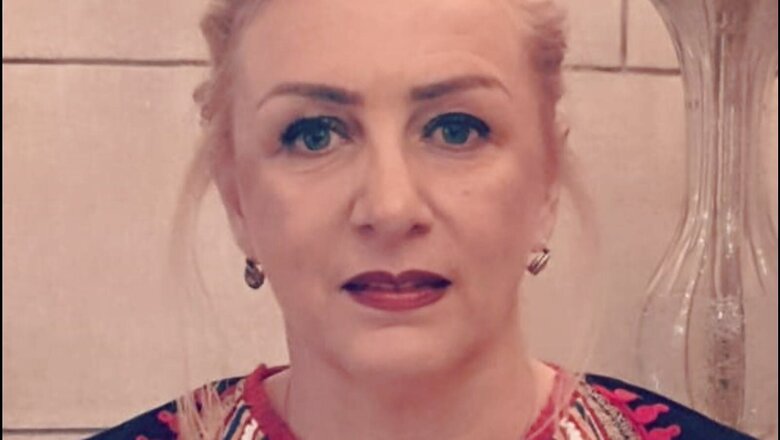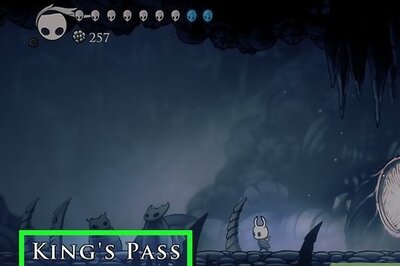
views
The war in Ukraine has triggered one of the biggest manmade tragedies of this century. The conflict in Europe has impacted economies and geopolitics around the world. Bulgaria, a member of the European Union and NATO, has been standing with Ukraine in this war. Bulgarian ambassador in Delhi Eleonora Dimitrova spoke to CNN-News18 on the prevailing situation.
It’s been one year of Russian aggression. Where do you see it going from here?
Let me begin by saying that Russia’s brutal war of choice has resulted in nothing else but deadly destruction, thousands of innocent victims, and tragedy that has forced millions of people from their homes.
It will be soon indeed the sombre anniversary of a year since the Russian armed forces invaded Ukraine. My country Bulgaria stands in full solidarity with Ukraine and I believe we all should pay tribute to the courage and resilience of the Ukrainian people shown in each and every of these last 365 days.
Regarding your question, the only way I see it going from here is towards the immediate and unconditional withdrawal of all Russian forces and military equipment from the entire territory of Ukraine.
Ever since the Russian war in Ukraine started a year ago, my country has expressed numerous times strong and unwavering support for the sovereignty, independence, and territorial integrity of Ukraine within its internationally recognised borders.
We expect Russia to immediately cease all hostilities and pull out its armed forces from the internationally recognised borders of the territory of Ukraine, which means including its territorial waters.
Peace and security in Ukraine should be restored as soon as possible and we continue to provide support to Ukraine in this. The ability of Ukraine’s democratically elected institutions to withstand this extremely difficult situation is of critical importance.
Since the beginning of the Russian war of aggression, Bulgaria has channelled more than 240 million euros from the state budget for different humanitarian and other types of assistance to Ukraine. In the months following the Russian invasion, more than 150,000 Ukrainian citizens have been registered for temporary protection in Bulgaria of whom more than 50,000 continue to reside in my country.
The Ministry of Foreign Affairs of the Republic of Bulgaria alone has channelled nearly 400,000 euros through its official assistance for development programmes and 110,000 euros for humanitarian aid.
We are taking into account the immediate challenges and urgent needs of Ukraine to ensure civilian resilience during the winter months and we are providing assistance according to our capabilities.
But coming back to your question, on a more positive note, I might not be able to say where it is going from here or when this war will be over, but one thing I can see very clearly, the European perspective of Ukraine and this is something which my country Bulgaria is traditionally promoting. Even more, Bulgaria was among the first to support the need for an accelerated political decision to grant Ukraine EU candidate status in these new unprecedented realities.
What I see and expect is also for the European Union to take the leading role in the process of Ukraine’s recovery.
There have been a number of sanctions against Russia. Do you think they are working, and what is your perspective on the impact of the sanctions, etc, on the global economy (considering the recession)?
From the very beginning of this unprovoked and unjustified Russian war against Ukraine, we, the countries from the EU and NATO have shown unity in defending the peace order, international law, and the rules-based system.
My country Bulgaria remains fully committed to the strong and unified NATO and EU response to the Russian military aggression in Ukraine and to Russia’s broader pattern of destabilising behaviour.
As you well know, so far the European Union and its member states have agreed upon nine sanctions packages. They were designed with the aim to deprive Russia of the ability to further fund its military campaign against Ukraine. And I think that the fact that on 27th January 2023, the EU decided to prolong the restrictive measures targeting specific sectors of the economy of the Russian Federation until 31 July 2023 speaks for itself and answers your question if the sanctions are working.
The sanctions, although originally designed to weaken Russia’s economic base, depriving it of critical technologies and markets, and significantly curtailing its ability to wage war, have one positive, in my view, the impact on the European Union, namely they helped the EU countries to break away from their dependency on Russia for energy imports.
What has been the impact of the war on the security architecture?
A year after its beginning, Russia’s full-scale war against Ukraine remains a major foreign policy and security challenge. It continues to inflict increasing suffering and losses and threatens security and stability not only in Europe but across the world.
The way Russia is conducting this war, its systemic disregard for the principles of humanity, the airstrikes against nonmilitary targets – residential areas and critical infrastructure – all this is highly unacceptable.
Impunity cannot be an option. We believe that the principles of full compliance with international law and of full accountability of perpetrators of war and atrocity crimes should define Russia’s way out of its own war of choice against Ukraine.
The United Nations member states have spoken loud and clear in defence of the values and principles enshrined in the UN Charter. It must be clear: Russia must stop and withdraw all its military forces from the entire territory of Ukraine, immediately, completely, and unconditionally, and engage in good faith in diplomatic efforts.
Read all the Latest India News here


















Comments
0 comment